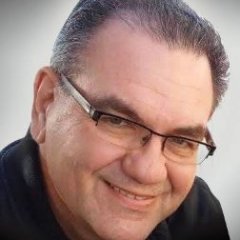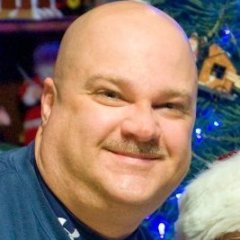
W4DOI
Content Type
Profiles
Forums
Special Pages
Ham History
14652 Pledge
Store
Events
Gallery
Blogs
Downloads
Collections
Posts posted by W4DOI
-
-
Hello Brian and welcome to Ham Community. I have an old analog 300-channel Radio Shack scanner that is about 30+ years old. Mainly, I use it to scan thru the ham repeaters in my area. You're right, for most of the public service and business radio has shifted to some form of digital and the old scanner is mostly useless for monitoring. I have been considering upgrading to a new scanner with more capability to receive some of the newer modes used these days. Of course, I've found there is alot to catch up on to try to figure out the best direction to pursue now. I have been eyeing one of the new Uniden scanners that are based on SDR technology such as the SDS200. Of course, these are quite expensive but with all the changes going on, I figure SDS technology has the best chance of keep up by using software upgrades. We also have laws that vary by state governing the use of scanner although mainly they address using them in a mobile. I live in a high rise apartment building and we seem to have frequent false fire alarms and it would be nice to have a receiver that could monitor the building maintenance net and fire response to have an idea of what is going on.... that is my main motivation for upgrading to a newer scanner. I have not made the purchase yet. Lately I have been monitoring using a iphone app of my local dispatch frequency to listen to the response. The scanner is still useful to monitor ham radio activity on my local repeaters. 2meter and 70cm activity continues to decline so it helps having a scanner to catch activity on the air. Although most 2m/70cm radios do a decent job of scanning programmed frequencies, so a dedicated scanner is not really needed. There is still groups of scanner enthusiasts here in the states and several onliine stores that cater to them. The Uniden, Whistler, and Bearcat scanner seem to be the most popular. My impression is that now the challenge if programming the scanner for the frequencies and modes used in the area that you are interested in scanning. It seems that different jurisdictions are selecting their own digital radios which makes selecting the best scanner more difficult. It was so much easier back in the day when I purchased my first analog scanner. It could handle wide and narrow FM and AM and I could pretty much listen to everything in the area. Not so today. Not sure if that helps or answers you question.
Alan W4DOI
-
 1
1
-
-
Dave,
Hello and Welcome to Ham Community. I was at the table where you met Jim/K3MRI at the St Mary's Hamfest at the volunteer Fire Dept station. We enjjoyed meeting everyone that stopped by that day. Happy to have you aboard Ham Community.
Alan / W4DOI (Falls Church, VA)
-
 1
1
-
-
22 years of service in the U.S. Air Force..... 15 years as a B-52 aviator - Copilot, Pilot, Instructor Pilot, Training School Instructor Pilot, Instructor School Instructor Pilot, Instructor School B-52 Chief Pilot.....7 years as a Strategic Air Command then Air Combat Command B-52/B-1 Training manager.
-
 1
1
-
 2
2
-
-
Hi Brad. Yes, brings back memories from the old analog/tube days. The old HW-101 sounded good on the net and it sounded quite stable to me to. The digital frequency displays of today really spoil use since we can just dial in the freq. Back in the day, we usually had a crystal calibrator oscillator but it was usually only every 100kc or so, that you zero-beated then set your dial to it. There weren't that many rigs that had analog dials could down to 1kc so it was a bit of a guess on exactly the frequency you were on. Even so, there was something nice about those mechanical analog dials when you spun the VFO knob. Thanks for the memories.... the Heathkit HW101 sounded good!
-
 1
1
-
-
Hi Brad. Thanks for checking out HamCommunity and for Joining. Seeing your image of the Atlas 215x brings back memories. I can remember seeing the first ads back in the day about this transceiver. I think it was one of the first solid state radios and maybe the first "small" transceiver of the day. About a year ago, during my first foray onto 160m, one of the fellows was trying to get his son (who had just been given an Atlas 215x from and old-timer) on the band and we could hear but not understand him. It definitely sounded like he was on the wrong sideband but they couldn't figure out how to correct it. From my early days of pouring over the ads for this radio, I remembered there was a somewhat obscure switch to change sidebands, I looked for an image of the radio and as soon as I saw it I could see that small slide switch in the bottom left corner of the front panel that controlled the sideband except it wasn't labeled as we expect today with "USB-LSB" it was more like "Normal-SB" or "OFF". I joined the conversation and pointed out that switch and sure enough, he changed positions and that fixed the problem. Look forward to saying hello in person tomorrow at Berryville Hamfest. Also, did you know you can recreate your profile with photos here in HamCommunity? In fact, you can simply copy and paste what you've already created in QRZ to your profile here. You can compare my two profiles to see (the one here and there, I pretty much just copied it into my profile here). Again, thanks for joining us here and let me encourage you to keep posting here.
10 newly posted or edited posts
-
Christmas on the Rhine Boat Trip Started
-
Last Minute Items Started
-
Volunteer Update Emails Started
-
Flashlights left at MCM Check-In Started
Quick Menu
- Ham Community - Homepage
- Ham Boutique - Get your farkle
- Ham Census - Shape the future of Ham Radio
- Ham Weblinks - Curated links
- Ask the Elmers - Direct access
- Ham Quizzes - Keeping you sharp
- Ham Tutorials - Learn from the best
- Ham Speakers - Give a talk, find a speaker
- Ham Volunteers - Organize and volunteer
- Support - For site or boutique problems





Anyone else studying for the Extra Class exam?
in Learning
Posted
Hi Angie,
I took a look at the bio you posted on qrz and you have a variety of interests and you appear to be the type of motivated new ham licensee that we like to see entering the hobby. I can echo what Jim/K3MRI said in his previous post and agree with his advice. I too am already an extra so as Jim said, maybe not the best to be giving advice to someone just taking steps to pass the extra exam. Plus, my ham story is fairly typical today..... started in ham radio as a teenager by joining a high school radio club back in the day when everyone started as a novice and morse code was required. I upgraded to General about a year after my novice (that license expired after one year with no renewal option at the time) -- in those days, we had to go to the FCC office to take exams (the VE system didn't exist yet) and first pass a 13wpm code test before we were allowed to attempt the General theory exam. Becoming an extra back in those days almost seemed out of reach. Besides the 20wpm code test, there was a requirement for a certain number of years of experience as a General, plus the very theoretical written exam (and there was no question pool to use back then -- you had to study the manuals and guides and learn the material).
At any rate, after becoming a General I operated for about 3 years, graduated from high school to a college with no radio club and, of course, college life took over followed by the normal distractions of the after-college life and my license expired. I was unlicensed for about 15 years then retested as a novice... although inactive for another 30 years. Then upon my retirement from work, I decided to re-enter the ham ranks and take the tests again. Of course, everything had changed -- VE system, question pools with answers, and no morse code, and no going to the FCC office to take the exams. Now, I have mentioned all of this to give you a frame of reference.... because, now I'm going to tell you how I studied for my exams. I had to pass all three exams again since I didn't have the documentation to be grandfathered into any class. So, first I took and passed the Tech exam one month, then studied for one month and took both the General and Extra exams in one session. I believe my method worked for me because I already had some background in ham radio theory from my previous licenses. But there was a lot of new material, especially in the extra exam. To me, the step from Tech to General had more overlap in knowledge and was a smaller step then going from General to Extra.
In addition to the advice of K3MRI and what you are already doing in your study, there's one other tool I would recommend that you take a look at to see if it works for you. Its an online tool that does a combination of teaching the subject material for the exam questions and also drills on the question pool. However, its also a software "system" that tracks your progress in the background and learns your weak areas and reviews those areas more often then ones you already know. However, it is not free like some of the online tools but they do give you a guarantee that you will pass the exam or they refund the cost. You don't need to install any software, everything is done through a browser so you can login and study from any computer with internet access. You can go to the following link to read about this tool (hamradiolicenseexam.com) and they also have a free 50 question demo/trial. From that information, you should be able to determine whether their method is right for you. It would supplement what you are already doing and should give you the confidence you need to go and take the exam. I would say that for those that need a human instructor providing the information and available for feedback, this online method may not be ideal since it requires you to read and study the material on your own -- on the other hand, that's an advantage since its available 24/7 and you go at your own pace.
As Jim said, in an ideal world we want extras that understand the material and can apply the concepts but on the other hand, the learning and skill development does not stop with the exam but most of it occurs after you have the license and keep learning more and apply it to your actual operating experiences.